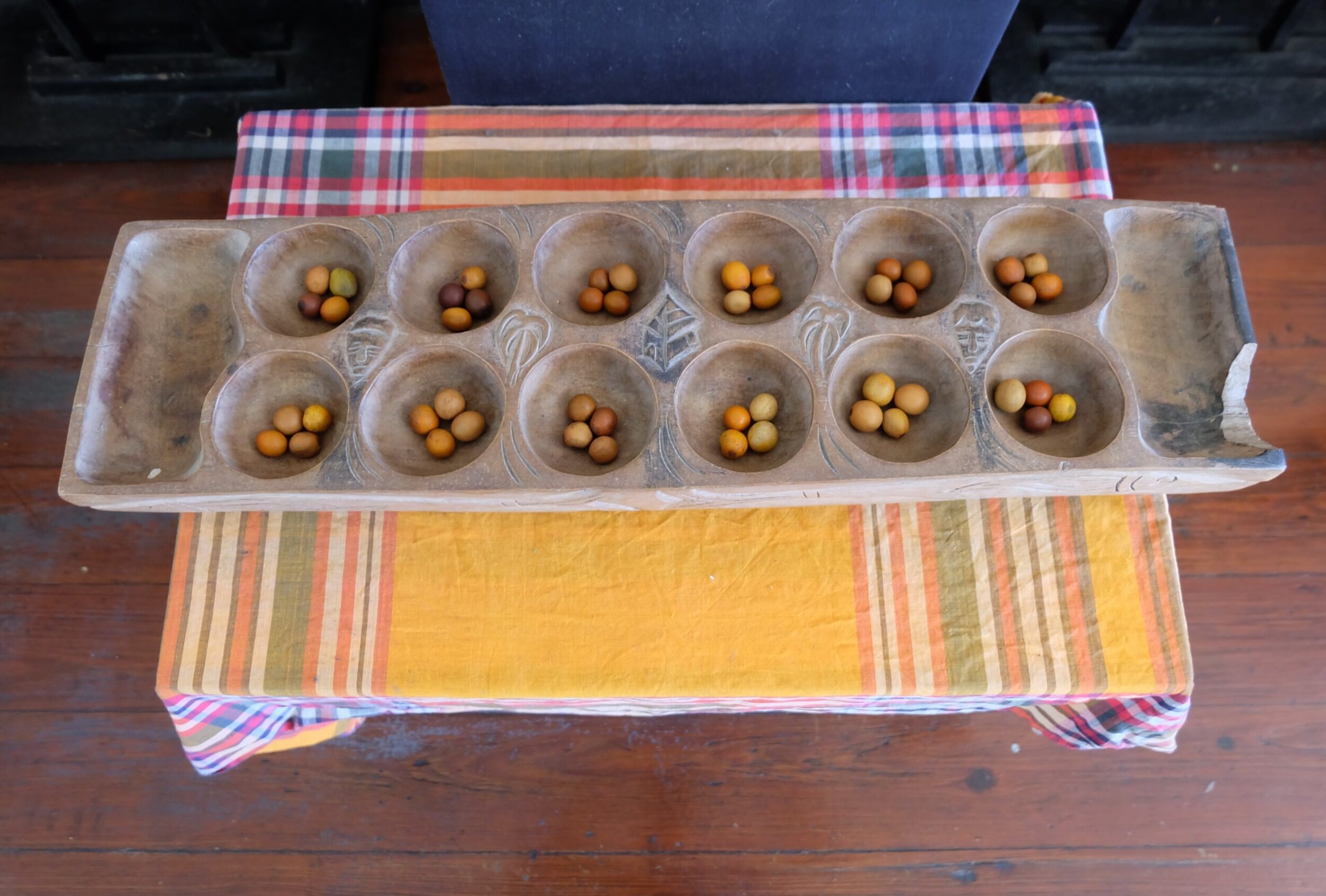Games People Play — St. Kitts

One of the things I enjoy about traveling to different places is seeing what sort of games people have traditionally played in them, and so I am always like finding some concrete example of this when I am visiting somewhere. (I say "traditionally" because it is so easy to find people playing the same sort of games via interfaces like X-Box almost everywhere these days.)
Currently I am serving as the destination lecturer aboard the Celebrity Reflection during a cruise through the eastern Caribbean and yesterday, while visiting the National Museum on the island of St. Kitts, was pleased to discover a beautiful example of a Warri board. As the placard accompanying this game set notes, Warri is one of the oldest board games in the world and variations on it exist in many different countries, where it is variously known as Mancala, Ayo, Awele, Aware, Ouril, and Oware (the national game of Ghana).
This two-person game originated in Africa and was brought to the Caribbean by black slaves who were brought to work on the islands' plantations. One of the reasons for the games popularity and persistence is that it can be played with almost any sort of pieces, including things like seeds, pebbles, and shells, and in the absence of a board with lines drawn on the ground. It is sort of endearing to me to think of these people being able to enjoy a game during the brief breaks from their servitude and in spite of the unfortunate conditions under which most of them lived.
Following are the rules for the variation of Warri presented at the National Museum in St. Kitts:
* Each player begins with the six cups in front of them, each with four pieces in it, and with the "storehouse" to their right.
* The first player chooses one of his or her cups and removes all the pieces from them.
* Moving counter-clockwise they then place one piece in every cup that comes next without skipping any of them (but not including the storehouses).
* When the last seed is dropped in an opponent's cup and makes the total number of seeds in that cup two or three, then the active player collects all of the pieces in that cup and places them in their own storehouse.
* Players alternate turns until a player has no pieces to move. The other player keeps any pieces remaining in his or her cups and places them in their storehouse.
* Whoever has collected the most pieces wins.
Give it a try yourself if you have not already at some point! Seminal games like this are a great way to both gain an appreciation for other cultures and hone your strategy. And, as noted, you can use just about anything, even a big hoard of d6s with a board drawn on a battlemat.




